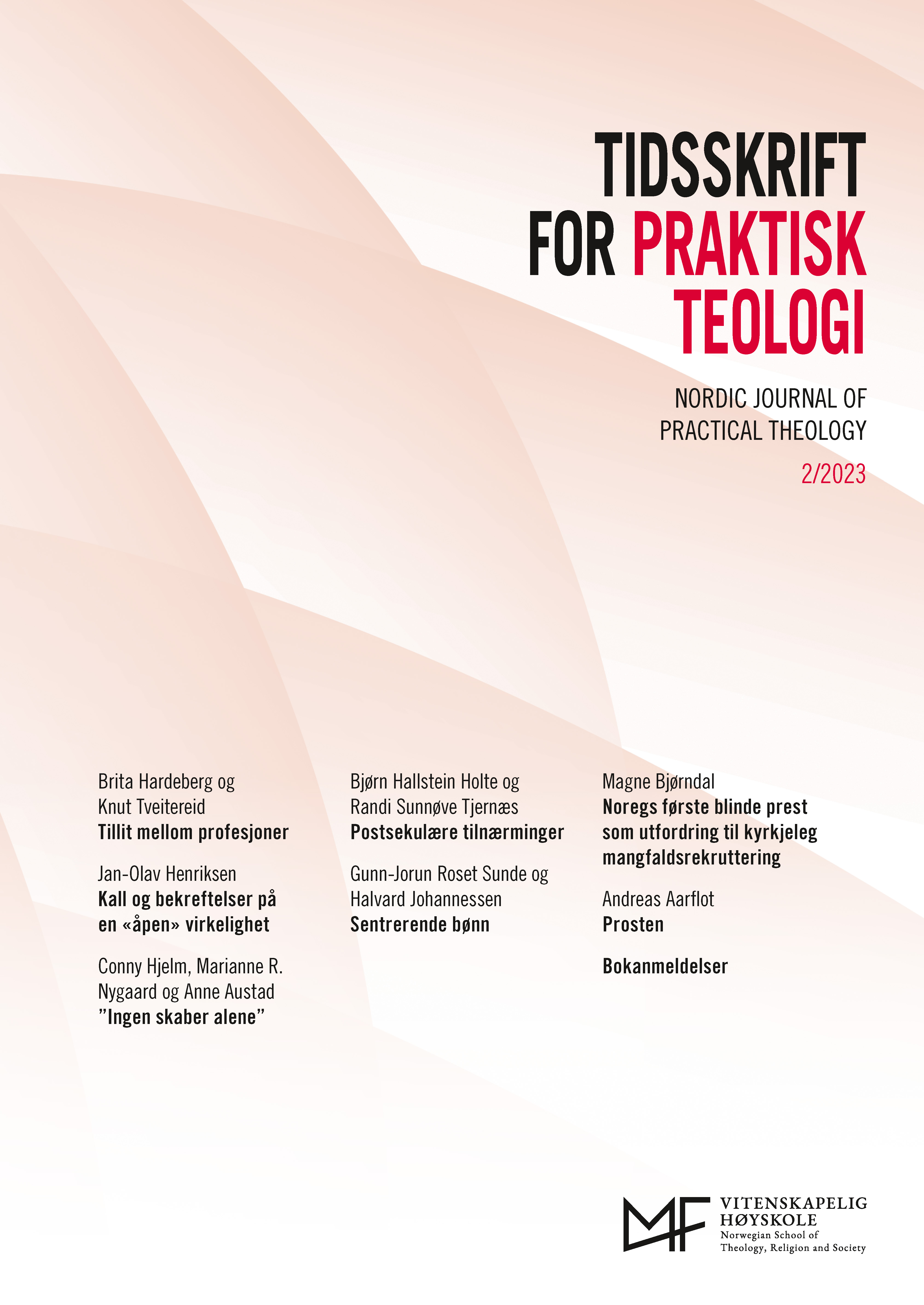Postsekulære tilnærminger
Nye muligheter for sosialt arbeid i Norge
DOI:
https://doi.org/10.48626/tpt.v40i2.5545Emneord (Nøkkelord):
Diakoni, Habermas, Mangfold, Nøytralitet, Postsekulær, Sosialt arbeid, VerdierSammendrag
Taking Jürgen Habermas’ work as a point of departure, this article explores post-secular approaches and their potential implications for social work in Norway. It presents Norwegian social work literature concerning religion and worldviews since the 1970s, revealing a trend towards the individualization and privatization of religion within this body of literature. Against this backdrop, the article argues that post-secular approaches can foster an understanding of religion, worldviews, and social work as interconnected ethical traditions and value-based practices. By supporting solidarity and exchange of ideas with religious actors, this perspective can offer new opportunities for critical reflection and professional development in social work. In particular, the article suggests, it can prompt a reconsideration of the intimate relationship between social work and the welfare state in the Norwegian context.
Nedlastinger
Statistikk
Nedlastinger
Publisert
Utgave
Seksjon
Lisens
Opphavsrett 2023 Tidsskrift for Praktisk Teologi

Dette verket er lisensiert under Creative Commons Attribution-NonCommercial-NoDerivatives 4.0 International License.





